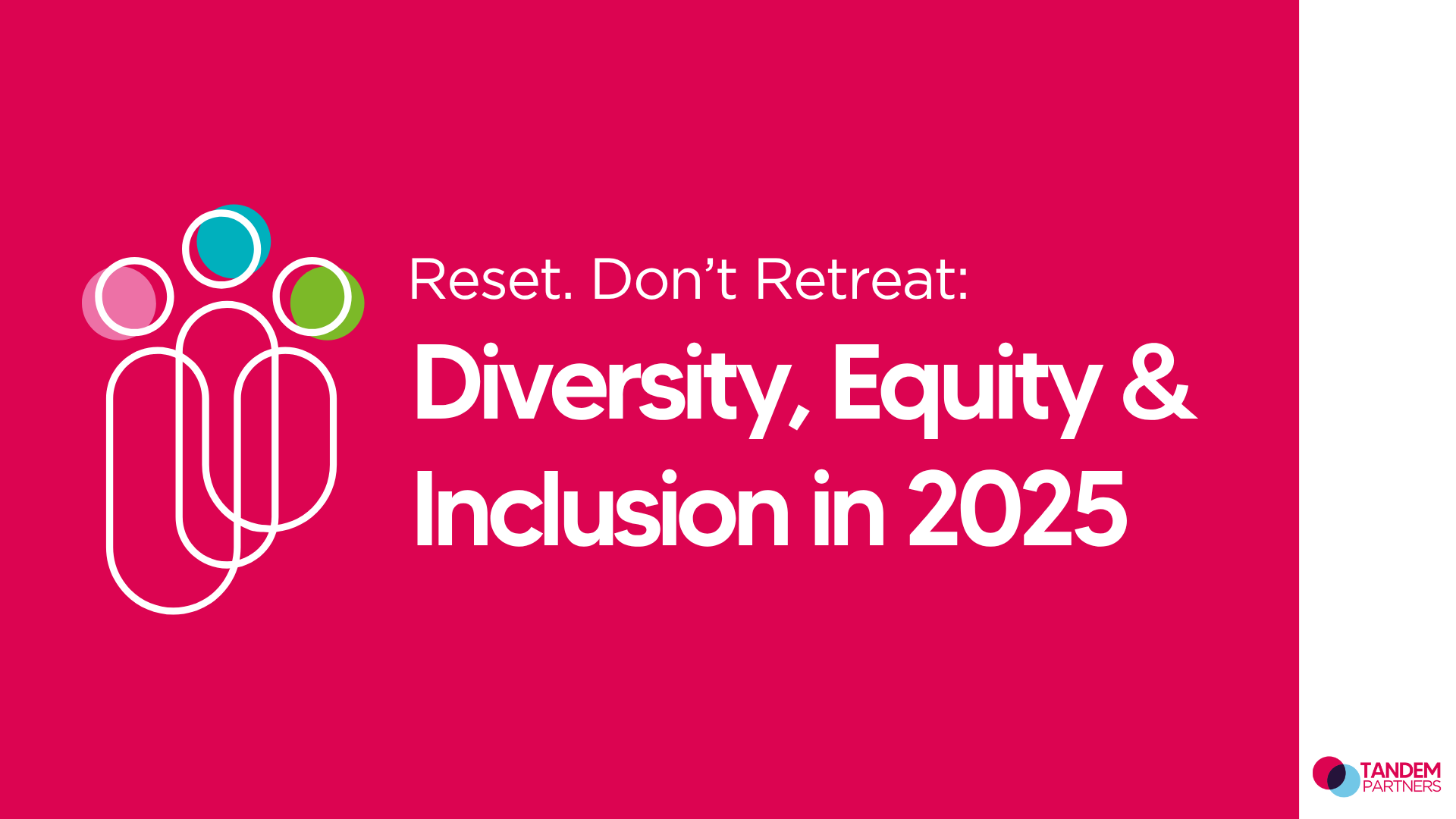Reset, Don’t Retreat: Diversity, Equity & Inclusion in 2025
Reset, Don’t Retreat: Diversity, Equity & Inclusion in 2025

As DEI programs come under pressure globally, businesses face a critical choice: retreat in response to resistance or reset with purpose and clarity. Legal firm Littler’s latest C-Suite Survey reveals a challenging new reality for DEI programs in the U.S.:
- 53% of executives expect a decline in DEI commitments this year
- 55% report growing fears of lawsuits or enforcement
- 76% still increased or maintained DEI efforts in 2024, largely due to employee expectations
Following a wave of executive orders in President Trump’s second term, many U.S. companies are retreating from public-facing DEI initiatives, pivoting instead to lower-risk strategies, such as affinity groups and internal community building. Australia's legal, cultural, and regulatory context tells a different story. Although the Everyday Respect report suggests that the number of Australian workers who are ‘opposed’ or ‘strongly opposed’ to DEI is increasing, here DEI remains not just relevant, but necessary.
✅ Australian obligations remain firm
- WGEA reporting and the positive duty under the Sex Discrimination Act require proactive action
- Queensland’s new positive duty applies to all protected attributes, not just sex
- Respect@Work and psychosocial safety laws continue to demand active steps from employers
🧭 Why DEI still matters
Despite formal progress, the underlying drivers for DEI and Respect@Work programs remain entrenched. The business case remains strong — diverse, inclusive teams drive innovation, performance, and wellbeing.
- A Diversity Council Australia (DCA) study shows that workers in inclusive teams were:
- 10x more likely to be very satisfied with their jobs
- 3x less likely to leave their organisation
🛠 Time for a review?
DEI, Respect@Work, and psychosocial safety hazard mitigations often overlap. Employers should take a careful and considered approach to any review of their DEI programs to avoid creating a risk of non-compliance in other areas. The rationale for DEI hasn’t changed — but how it’s implemented (or even what it’s called) might need a reset. A review can ensure the approach is fit for purpose: aligned with strategy, law, and culture.
⚠️ Resistance is part of the process
Cultural change can be uncomfortable. Elizabeth Broderick’s Everyday Respect report found that resistance is normal when long-held norms are challenged. But it can be addressed — not by retreating, but through thoughtful, inclusive engagement. Leaders can create space for open dialogue, acknowledge complex feelings, and ensure all workers feel seen. Done well, this builds trust and makes progress sustainable.
🔍The question isn’t whether DEI still matters — it’s how we evolve it.
Now is the time for Australian organisations to lead with clarity, not caution. By resetting our DEI strategies — not retreating from them — we can build workplaces that are not only compliant but genuinely inclusive, innovative, and successful.
If you are interested in Littler's C-Suite Survey on DEI in the US, you can find the full details here. Another excellent resource, Is DEI really 'dead' from King & Wood Mallesons, looks at what Australian organisations should be aware of.
Refine results
Keywords
Contact Us
Categories
News
HR Leader Series


